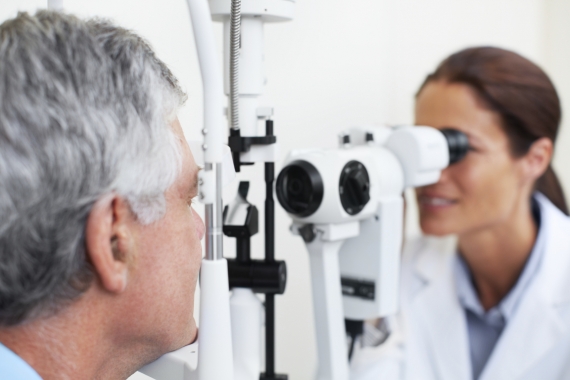Diabetes Eye Problems
There are usually no symptoms in the early stages of diabetic eye disease. To avoid eye problems related to your diabetes and have the best options for treatment, it’s extremely important to have an annual dilated eye exam at Elmquist Eye Group in Cape Coral or Fort Myers.
According to the American Academy of Ophthalmology, diabetes affects 12.3% of adults age 20 and older. More than 29 million Americans have the disease, and about 8 million of them don’t know it. Since eye complications are common with diabetes, it’s crucial to diagnose problems early to avoid or can successfully treated the most serious complications.
 Elmquist Eye Group proudly serves Fort Myers, Cape Coral and all of Southwest Florida. Our state of the art technology, specialized equipment, and skilled team of doctors allow us to provide you with an unsurpassed level of care, including specialized care for diabetic patients.
Elmquist Eye Group proudly serves Fort Myers, Cape Coral and all of Southwest Florida. Our state of the art technology, specialized equipment, and skilled team of doctors allow us to provide you with an unsurpassed level of care, including specialized care for diabetic patients.
E. Trevor Elmquist, DO, is board certified by the American Board of Ophthalmology. He specializes in general ophthalmology and cataract surgery, and is one of America’s Top Doctors, selected by Castle Connolly Medical Ltd.
His partner, Kate Wagner, OD, and his associate, Nina Burt, OD, are both board certified optometrists who provide complete eye care services. Together, the team at Elmquist Eye Group has the expertise to care for anyone in your family, from children to seniors.
Diabetes-Related Eye Conditions
Diabetes and high blood sugar can cause serious damage to the eyes. Although glucose is an important source of energy for the body’s cells, too much of it in the blood can cause damage in many parts of the body, including the heart, kidneys, blood vessels and the small blood vessels in the eyes.
Diabetic Retinopathy
Diabetic retinopathy is the most common diabetic eye disease and a leading cause of blindness in the U.S. It is an eye complication that results from the breakdown of blood vessels in the back of the eye. A dilated eye exam may show swelling, leaking, or abnormal growth of blood vessels, indicating the onset of the disease.
Your doctor may recommend laser treatment to seal off leaking blood vessels and discourage their further growth. The earlier the treatment is started, the more successful it can be. Although there is no cure for diabetic retinopathy, laser treatment can help save your remaining vision. It is extremely important, however, to have your condition monitored on a regular basis by a skilled ophthalmologist.
Glaucoma
Glaucoma is the world’s second leading cause of blindness, and is commonly called the “thief of sight” because many people are unaware of the disease until its later stages when it is more difficult to control.
Glaucoma damages the optic nerve which relays information from the eyes to the brain. Individuals with diabetes are three times more likely to develop the disease than people without diabetes, especially if they are over age 40. A comprehensive dilated eye exam can detect the disease in its early stages.
Cataracts
A cataract is a gradual thickening of the normally clear lens of your eye, causing it to become cloudy and preventing light from reaching the retina. A cataract will cause your vision to become blurry or dim.
Cataracts are a common eye condition that develops as we age, but diabetes can speed up their formation. Constant fluctuations in blood sugars can hasten the clouding of the lens and may cause cataracts to occur at an earlier age.
Don’t allow diabetes to steal your vision. If you have questions about eye problems related to diabetes or are looking for the best treatment options in Cape Coral or Fort Myers, you can count on Elmquist Eye Group to provide the highest level of care. Call us today at (239) 936-2020 to make an appointment.
